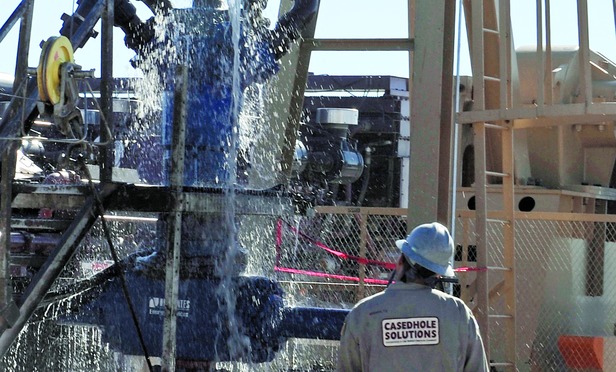Hydraulic fracturing has played an important role in the recent resurgence of America’s oil and gas production. Crude oil production has risen 40 percent during the past five years, and today roughly 35,000 wells are hydraulically fractured every year. Although fracking accounts for only 1 percent or 2 percent of Texas’ overall water use, it consumes more water than conventional drilling, represents the latest in a long line of demands and has prompted disputes related to water use and disposal that are spilling over into the courts. In Texas alone, it is estimated that 25 billion gallons of water were consumed last year in fracking operations.
While the national debate has focused on whether fracking chemicals can migrate and contaminate drinking water aquifers, or possible links between wastewater injection wells and earthquakes, a more basic issue is at the forefront in Texas: Do the fundamental principles of property, oil and gas, and water laws allow for a claim of trespass when wastewater migrates from a legal injection well into a landowner’s property? The answer provided by the Texas Supreme Court in its impending decision in FPL Farming Ltd. v. Environmental Processing Systems could have a significant effect on water disposal and Texas fracking operations.




